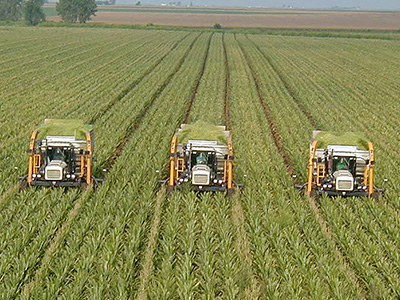Sustainable Agriculture
A In simplest terms, sustainable agriculture is the production of food, fiber, or other plant or animal products using farming techniques that protect the environment, public health, human communities, and animal welfare. This form of agriculture enables us to produce healthful food without compromising future generations' ability to do the same. Sustainable farms produce crops and raise animals without relying on toxic chemical pesticides, synthetic fertilizers, genetically modified seeds or practices that degrade soil, water, or other natural resources. By growing a variety of plants and using techniques such as crop rotation, conservation tillage, and pasture-based livestock husbandry, sustainable farms protect biodiversity and foster the development and maintenance of healthy ecosystems. Although industrial agriculture now produces great quantities of food at low prices, it is able to do so only by implementing practices that threaten the environment, human health, rural communities, and animal welfare.

